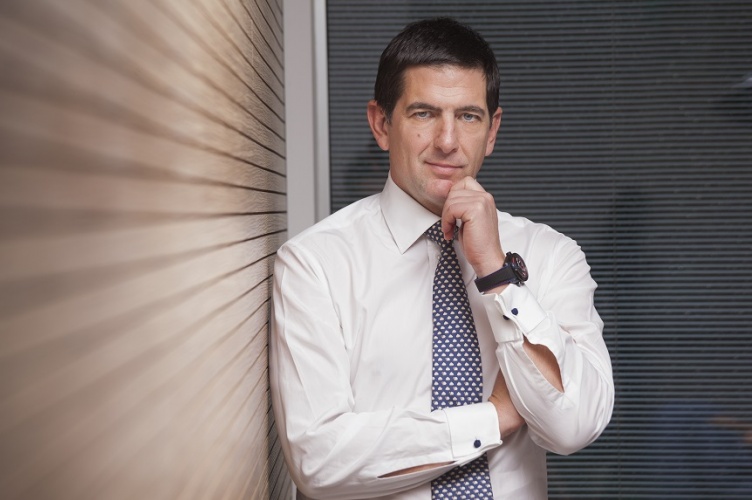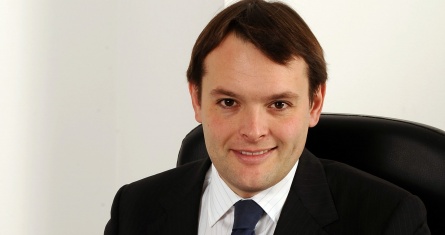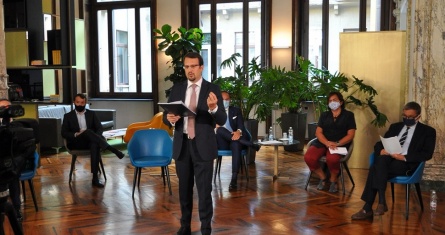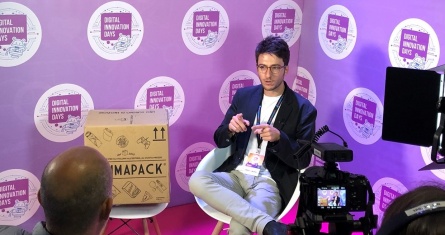ESCP Turin Campus continues to grow its corporate network thanks to a new and exciting partnership established with TeamSystem, a European leader in Management/ERP software and training services.
To honour the Turin Campus’ latest corporate partnership, we invited one of our students to interview Federico Leproux, CEO of TeamSystem. The CEO was interviewed by Laura Jimenez Daneri, MBA in International Management student.
With over forty years of experience in the Management Software market, TeamSystem is a constantly growing group. In 2019 it reported a net income of 418 million Euros with a client portfolio of over 1,4 million customers.
Laura Jimenez Daneri: TeamSystem has experienced an impressive growth over the last few years. How do you expect the current health situation will influence the growth of the company? Which clients, who were not so keen on it before, may start being interested in digitalisation?
Federico Leproux: We are doing very well, although we cannot deny – just like every other company – an impact related to the pandemic. We nevertheless closed 2019 at 418 million euros, +17.5% compared to the previous year. We have already completed three acquisitions this year and we will continue to look around. We have over 1.4 million customers who have chosen TeamSystem to digitalise their processes. We have no intention of giving up on the investment plan. We believe that digital finance and e-commerce are the two sectors that will show the sharpest acceleration and in which we will move for further investments if we should need to do so. We are getting ever readier for the future that will become even more digital. Processes in the cloud, e-commerce, Industry 4.0, cybersecurity, will become extremely important in the coming months.

LJD: Since automatisation is a scary concept for many people, what would you say to help them get prepared for it? What do you think will remain as the added value of human resources in any company?
FL: The so-called 'fourth industrial revolution' has just begun, but technological innovation is continuing at unprecedented growth rates. In 3-4 years, I am sure that the world will change completely and evolve from what we see today, which is already very different from just a few years ago. In such a rapidly changing scenario, the partnership between “man” and “machine”, the way in which they will be able to fill each other's gaps, the way they will be able to integrate their respective "skills", is going to have a significant impact on business development.
To support this integration of skills between man and machine, however, I believe it is necessary to carefully manage several predominant aspects. One of them, perhaps the most important, is training. We must - as a Country System – necessarily create a link between future industry scenarios and training. We must - with the help of Institutions - raise awareness among young people to undertake studies in STEM disciplines.
LJD: What are the main challenges that you foresee for our generation? What do you think are the most important skills to develop to get prepared?
FL: We must invest in our young people to create the skills that are essential in the new digital scenario. We need to manage the transition. We need great focus at a national level on a re-skilling plan, designed for today's workers, that addresses the significant gap in technological skills that currently exists in the workforce. In order to become stable, in fact, growth needs to leverage innovation, but this cannot ignore the reduction of the skill gap and therefore the development of new skills.
LJD: What is it about ESCP Business School that caught your attention?
FL: People in TeamSystem are our Competitive Advantage. We are fully engaged in seeking talent because we think that this is the only way to keep growing and make our growth sustainable through the years. We approached ESCP because we know that it can supply the talents we need and offers its partners a wide range of initiatives in order to create profitable synergies between companies and university.
The other aspect that caught our attention is that ESCP puts together students and universities with different backgrounds. We are a very "glocal" company, our growth has occurred, among other things, through acquisitions and we are a melting pot of many different souls who have been able to coexist and lead our organisation to achieve some amazing goals.
All these aspects are very important for a company like us that is working to be the most important digitization partner for Italian companies.
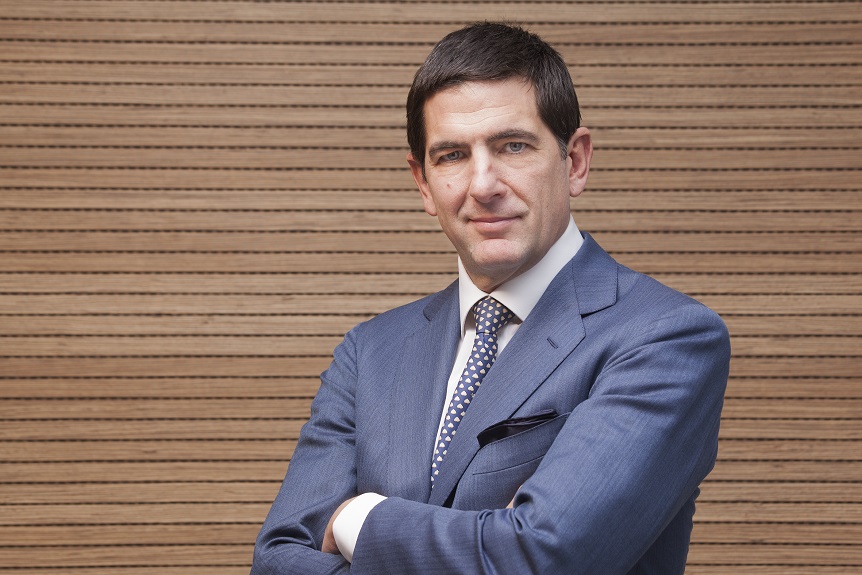
LJD: If you had the chance to attend one of the programmes proposed by the school, which one would you choose and why?
FL: I think that there are many interesting programmes with amazing reviews like the Master in Management or some very interesting in-depth specialised masters such as Big Data & Digital Transformation, Entrepreneurship & Innovation, Business Performance Management and also International Food & Beverage Management.
LJD: What would you recommend as a "good practice" for ESCP students to succeed in their professional lives?
FL: You have to understand what your interests and talents are and work on them… it will help you keep passionate about your career growth. This is a changing world, you shouldn’t be afraid of change, you really need to be part of it. This also could mean that what you know today could be useless tomorrow... If you stay curious you will always be ready for what’s next and your professional life will always be current and ready for new opportunities.
One of the key characteristics of ESCP Turin Campus is its strong ties with the business community. The campus boasts 18 corporate partners and robust relationships with several national and international companies.
Find out more about our Corporate Partners.
Campuses
